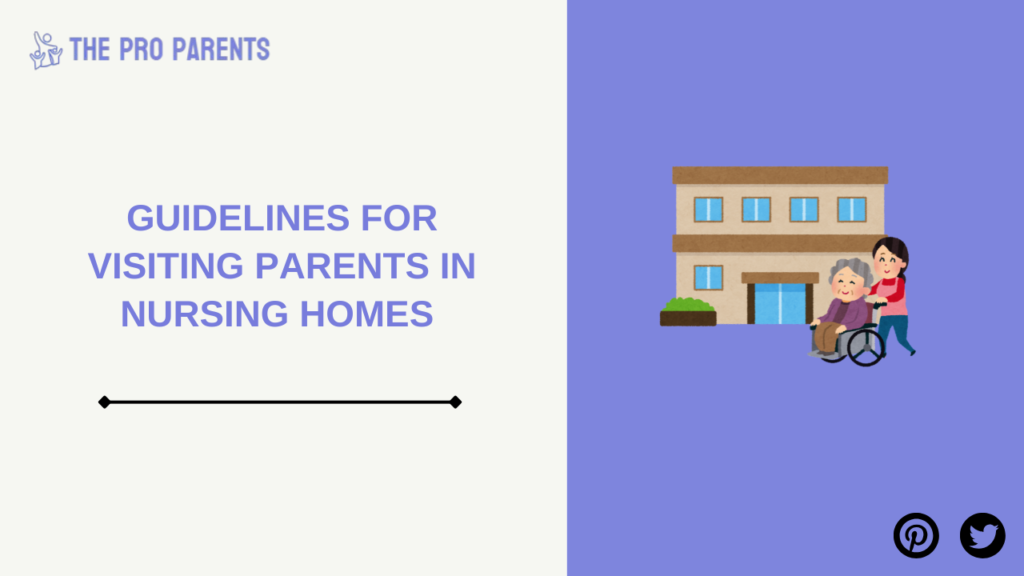Visiting a parent in a nursing home can be a deeply meaningful experience—both for you and for them. It helps maintain emotional well-being, reinforces family bonds, and can even improve your loved one’s overall health and happiness. For aging parents, loneliness in nursing homes is a real issue, and having a regular visitor can make all the difference in their quality of life.
But with busy schedules, travel constraints, and the emotional challenges of caregiving, one question often arises: how often should you visit a parent in a nursing home?
This guide explores various factors that influence visit frequency, provides actionable tips, and highlights alternative ways to stay connected. Whether you’re a few miles or hundreds of miles away, there’s always a way to show your love and support.
Table of Contents
Factors Affecting Visit Frequency

How often you visit may depend on several personal and logistical factors. Keep these in mind as you determine what works best for your situation:
1. Distance from the Nursing Home
Living close to the nursing home naturally makes frequent visits easier, but not everyone has this luxury. Long-distance caregivers may need to plan visits less frequently—perhaps once a month—while coordinating with local family members to fill in the gaps.
2. Health Status of Your Parent
If your parent’s health is declining or they require additional emotional support, visiting more often might be necessary. Conversely, if they’re content and well-adjusted, less frequent visits might suffice as long as they feel connected.
3. Shared Family Responsibilities
If you’re part of a larger family, dividing visit schedules can make it easier to ensure consistent contact. Creating a rotating visit calendar ensures no one person feels overwhelmed.
4. Quality Over Quantity
While visiting frequently is ideal, what matters most is making each visit meaningful. A well-planned, engaging visit holds far more value than a rushed or distracted drop-in.
Guidelines for Visiting Parents in Nursing Homes

You’ve decided on a visit schedule, but how can you make your visits truly count? Here’s how to ensure each moment is memorable:
1. Prepare for Your Visit
Before arriving, check in with the nursing home staff to see if your parent has mentioned any specific needs or desires. Thinking ahead shows that you care and helps make the visit more personalized.
2. Engage in Activities
Sitting and chatting is always comforting, but consider introducing meaningful activities such as:
- Looking through old photo albums.
- Completing a simple craft together.
- Playing your parent’s favorite music.
3. Bring a Special Touch
Consider bringing something small but thoughtful, like a book, a snack they love, or a cozy blanket. These gestures help demonstrate your attention to your loved one’s unique preferences.
4. Plan Visits Around Milestones
Celebrate birthdays, anniversaries, or holidays at the nursing home to make your parent feel valued as part of the family’s traditions.
How Often Is Too Often?
Visiting a parent too frequently might unintentionally foster dependency or guilt, while visiting too rarely could lead to feelings of abandonment. The key lies in balance and open communication.
Signs You May Be Visiting Too Often:
- Your parent expresses guilt about “taking up your time.”
- Visits become more stressful than enjoyable.
Signs You May Be Visiting Too Rarely:
- Your parent seems lonely, withdrawn, or more emotional during visits.
- You feel disconnected or out of touch with their needs or care progress.
To strike a balance, talk openly with your parent about their preferences and ask the nursing home staff for feedback—they often have valuable insights on your parent’s emotional well-being.
Understanding Emotional Needs

Every nursing home resident has unique emotional and social needs. Taking the time to tune into these can help you shape a visit schedule that works for both you and your parent.
1. Listen to Their Preferences
Some parents might prefer weekly visits, while others might feel perfectly content with monthly check-ins as long as they feel connected and supported.
2. Communicate with the Nursing Home Staff
Staff members can provide insights into your parent’s mood and adjust care recommendations based on your observations. Their partnership can make a significant impact on your parent’s happiness.
Tips for Staying Connected When You Can’t Visit
Life happens. Whether it’s work, illness, or travel constraints, there may be times when visiting in person simply isn’t possible. Here are alternative ways to keep the connection alive:
1. Schedule Regular Phone or Video Calls
A quick call or video chat is often enough to reassure your parent that you’re thinking about them. To make it even more special, share updates, jokes, or stories.
2. Send Care Packages
Include thoughtful items like handwritten letters, family photos, and small treats. These can brighten your parent’s day and create a tangible reminder of your affection.
3. Get Tech-Savvy
Introduce your parent to tablets or smart speakers if they’re interested—these technologies can make communication, entertainment, and engagement more accessible.
Common Challenges and How to Overcome Them

Though visits are vital, some challenges can make maintaining a regular schedule difficult.
1. Long Distances
Solution: Coordinate visits with family members who live closer or consider combining trips with other errands if you’re traveling far.
2. Busy Schedules
Solution: Set recurring reminders or add a visit to your calendar to ensure it becomes a part of your routine.
3. Emotional Stress
Solution: Recognize and address your feelings. Talk to a counselor or join a caregiver support group to process these emotions healthily.
The Long-Term Impact of Regular Visits
Consistent visits positively affect both parents and their families. Studies show that regular, meaningful interactions improve mental health, reduce feelings of isolation, and even slow cognitive decline in elderly residents.
For families, visiting fosters stronger bonds and creates lasting memories. You’ll feel a greater sense of connection and satisfaction knowing you’re actively contributing to your parent’s happiness and well-being.
Building a Meaningful Connection
How often you visit your parent in a nursing home ultimately depends on personal circumstances, but the most important takeaway is this: make every effort to stay connected. Whether in person, over the phone, or through letters, each interaction strengthens your bond.
Take action today by planning your next visit or scheduling a call. Because at the heart of it all, your love and presence are the most meaningful gifts you can give.
FAQ
How often should I visit my parent in a nursing home?
Visit at least once a week, but adjust based on your parent’s needs and preferences.
Can too many visits cause stress for my parent?
Frequent visits can be overwhelming, so balance visits with their comfort and energy levels.
Should I visit during specific times?
Visit during quieter times to avoid disruption, such as mid-morning or early afternoon.
What should I do during nursing home visits?
Engage in conversation, bring small gifts, or assist with activities to keep your parent connected and supported.



